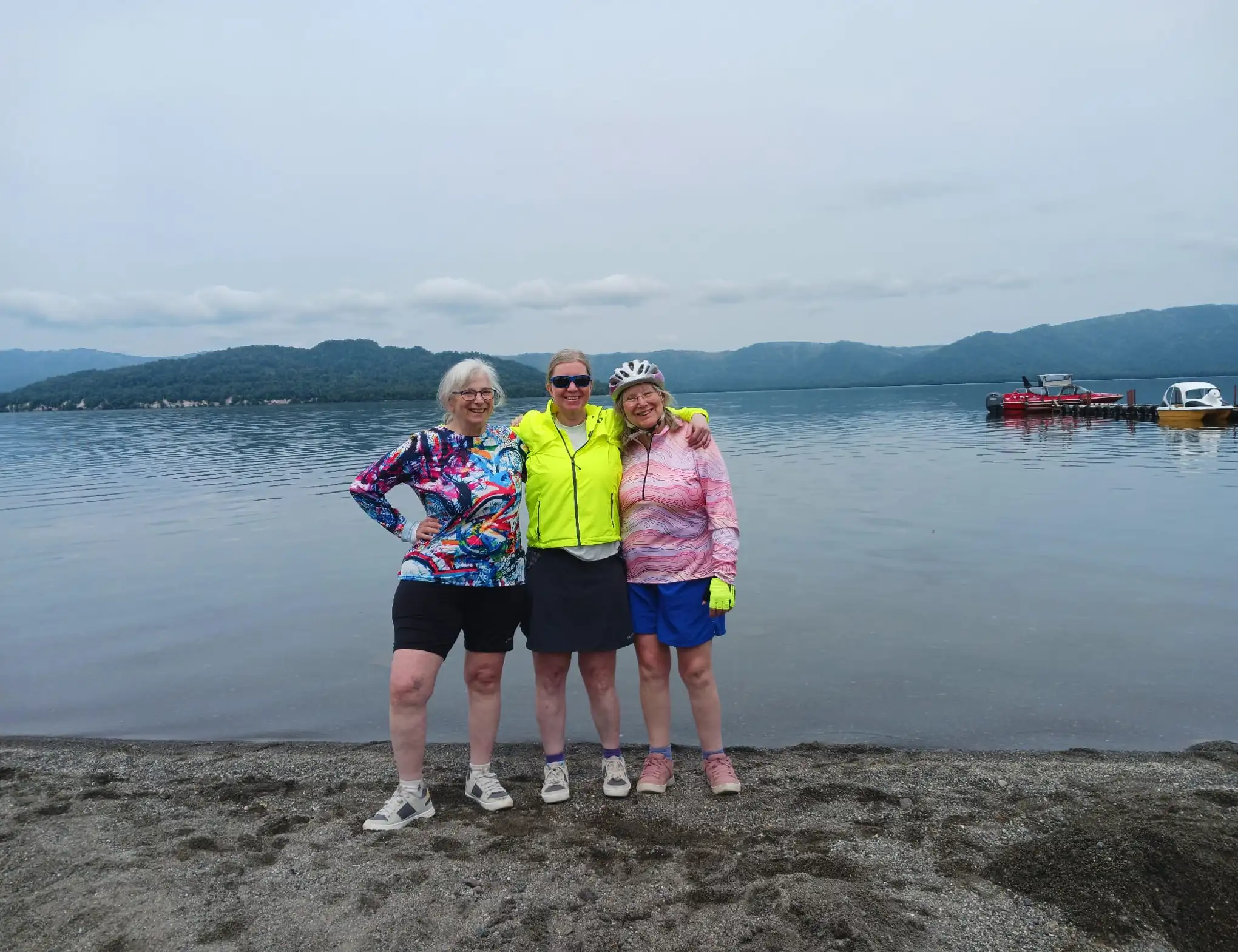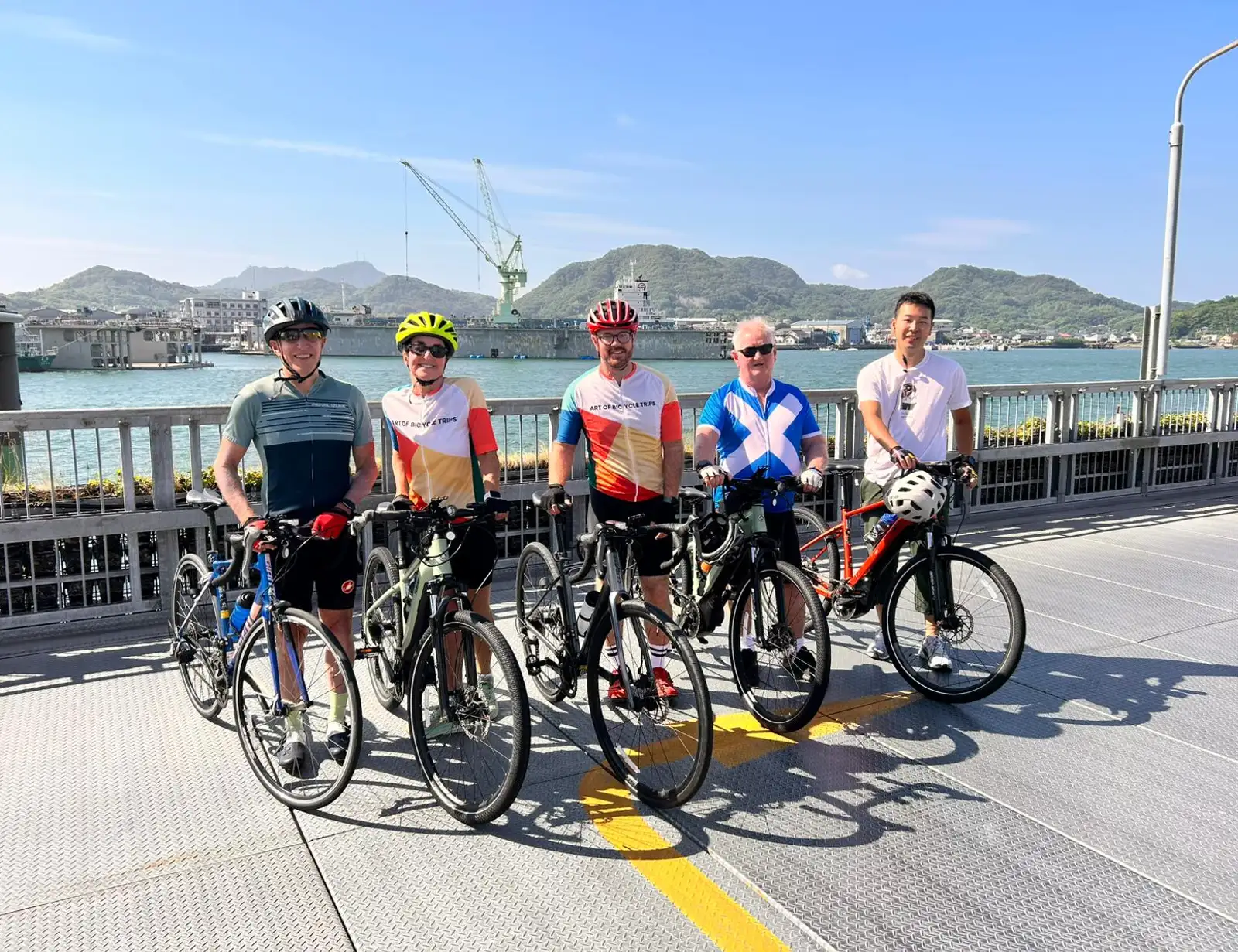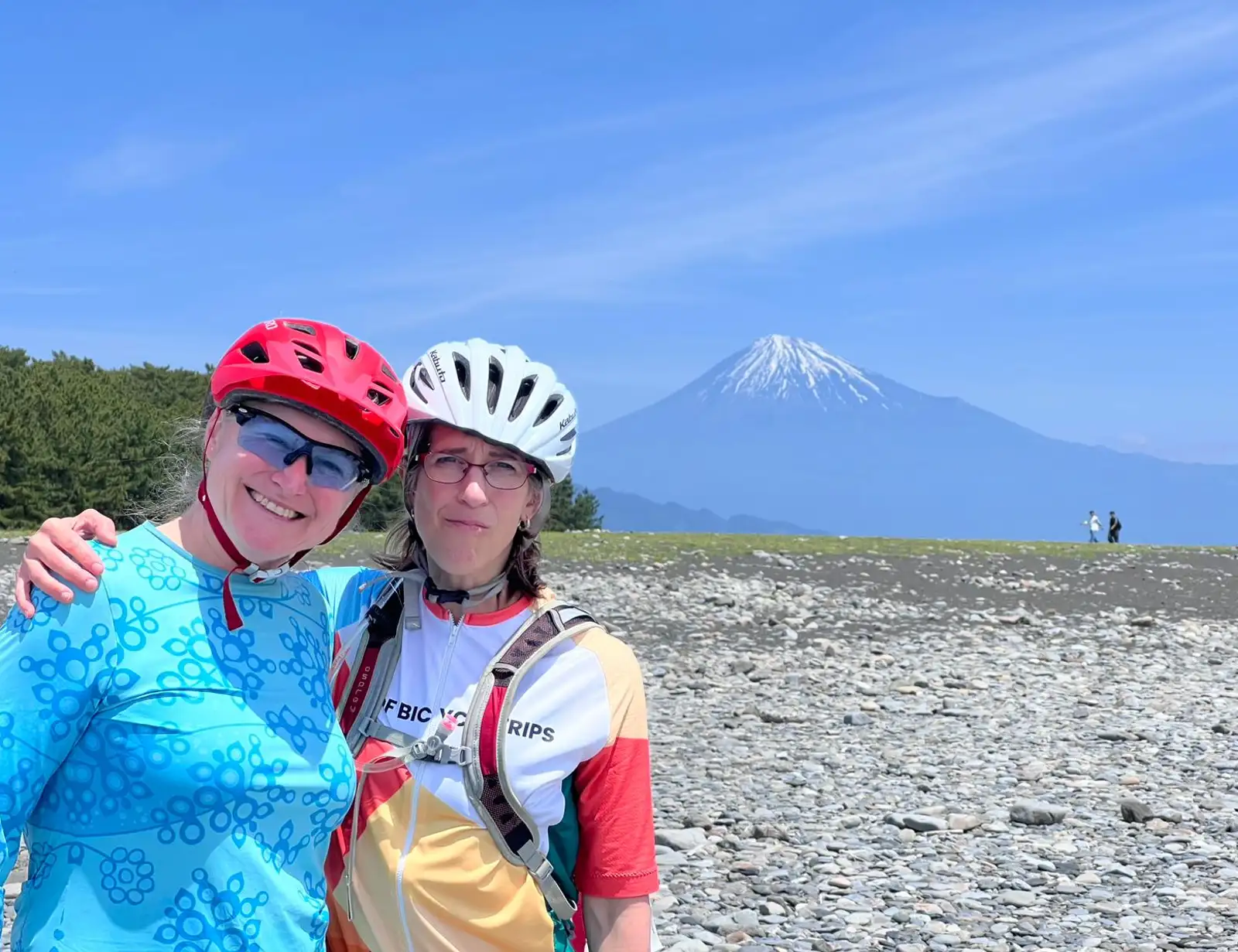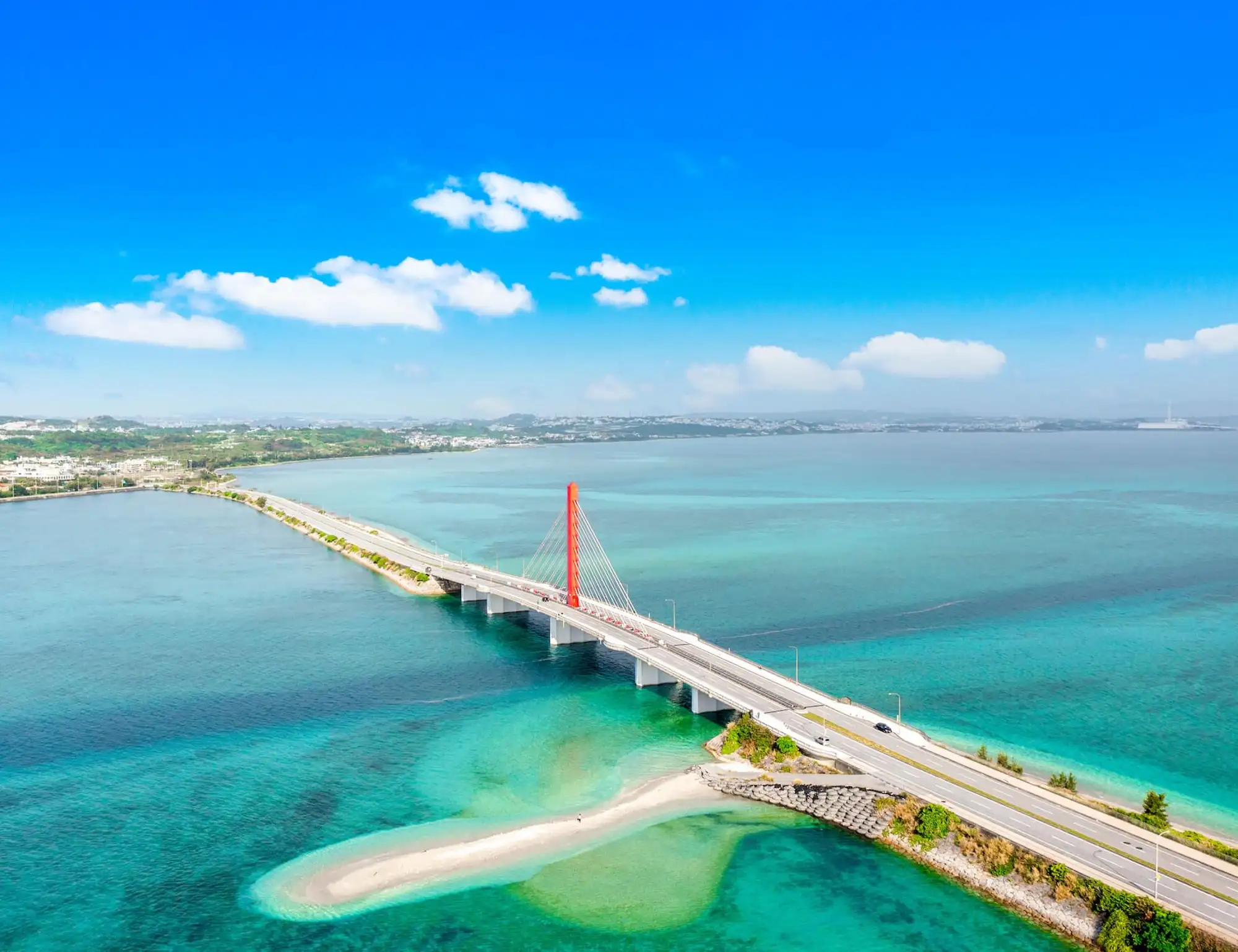Book with Confidence: Enjoy peace of mind — your 10% deposit is fully refundable up to 60 days before departure. See terms & conditions.
Kyoto to Sea of Japan Bike Tour
Kyoto is the cultural heart of Japan.
20% of Japan’s national treasures, 14% of its important cultural assets, 17 UNESCO World Heritage Sites, and 108 Michelin Star restaurants — the third most of any city in the world — are all located in the city of Kyoto alone.
Remarkable as the city of Kyoto is, the countryside surrounding it is even more special.
This bike tour starts from the city of Kyoto and takes you through the most untouched part of Kyoto prefecture — the Tango peninsula.
We ride past quaint villages, scenic onsen hot springs, and beautiful castles, while relishing delicious and fresh Japanese cuisine that would be the envy of any Michelin-star restaurant.
However, the best is reserved for the last.
We end the tour at Amanohashidate, a pine-covered sandbar on the Sea of Japan that has been celebrated since 1643 as one among the three most scenic views in all of Japan. And given the highly refined sense of aesthetics and beauty the Japanese are known for, this is high praise indeed.
Guided
casual hotels
Kyoto | 17:00hrs
Amanohashidate
moderate to challenging
62 km / 38 mi
6
Min. 4, Max. 14
Kansai International Airport (KIX)
Kansai International Airport (KIX
Highlights
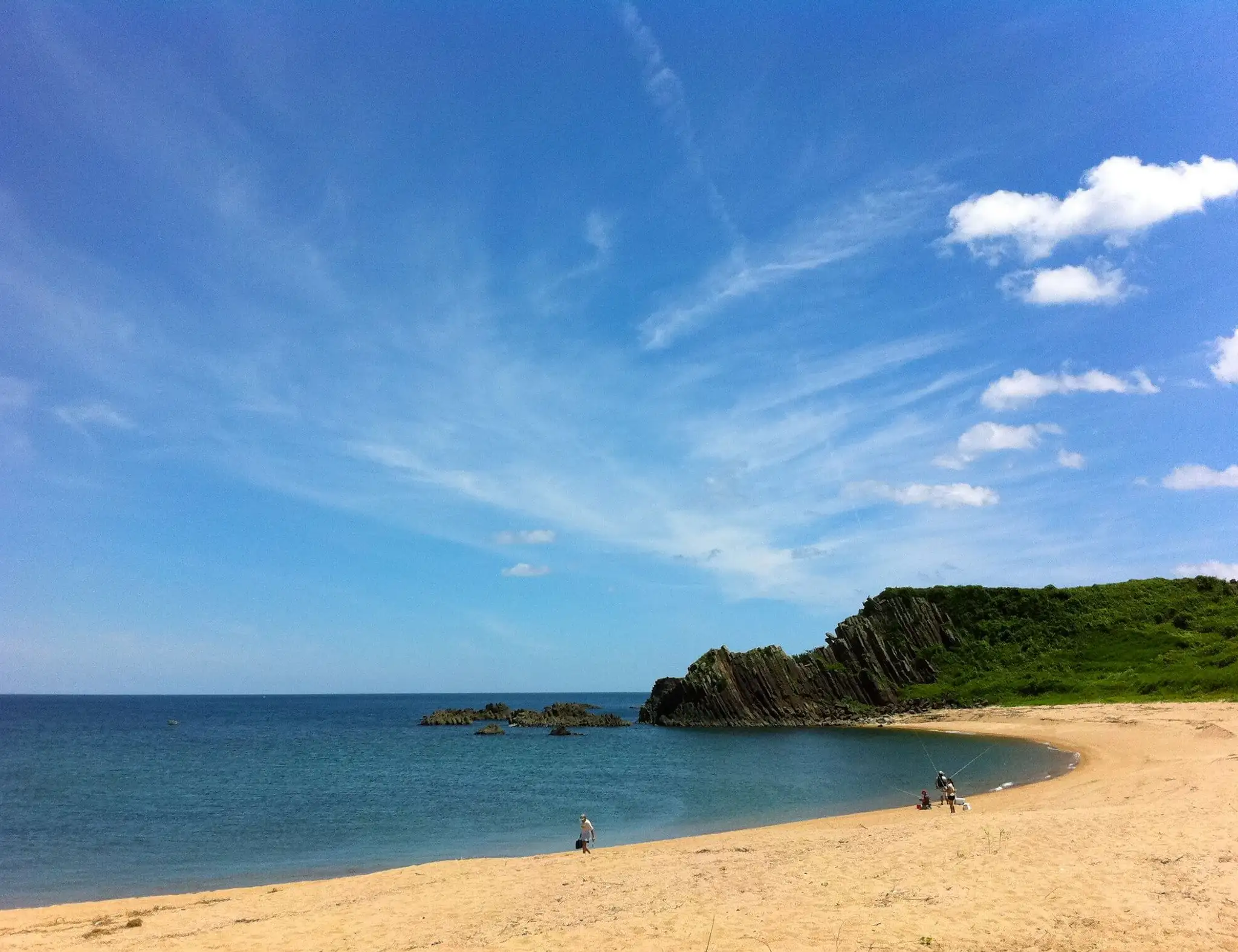
Cycle the Stunning Tango Peninsula
The wild Tango Peninsula within Kyoto prefecture is blessed with exceptional natural beauty. Its white sand beaches, rural charm, and forest covered hills making it an excellent place to cycle. When biking in Tango, it is easy to forget to that you're not in a tropical paradise, but rather in Kyoto.
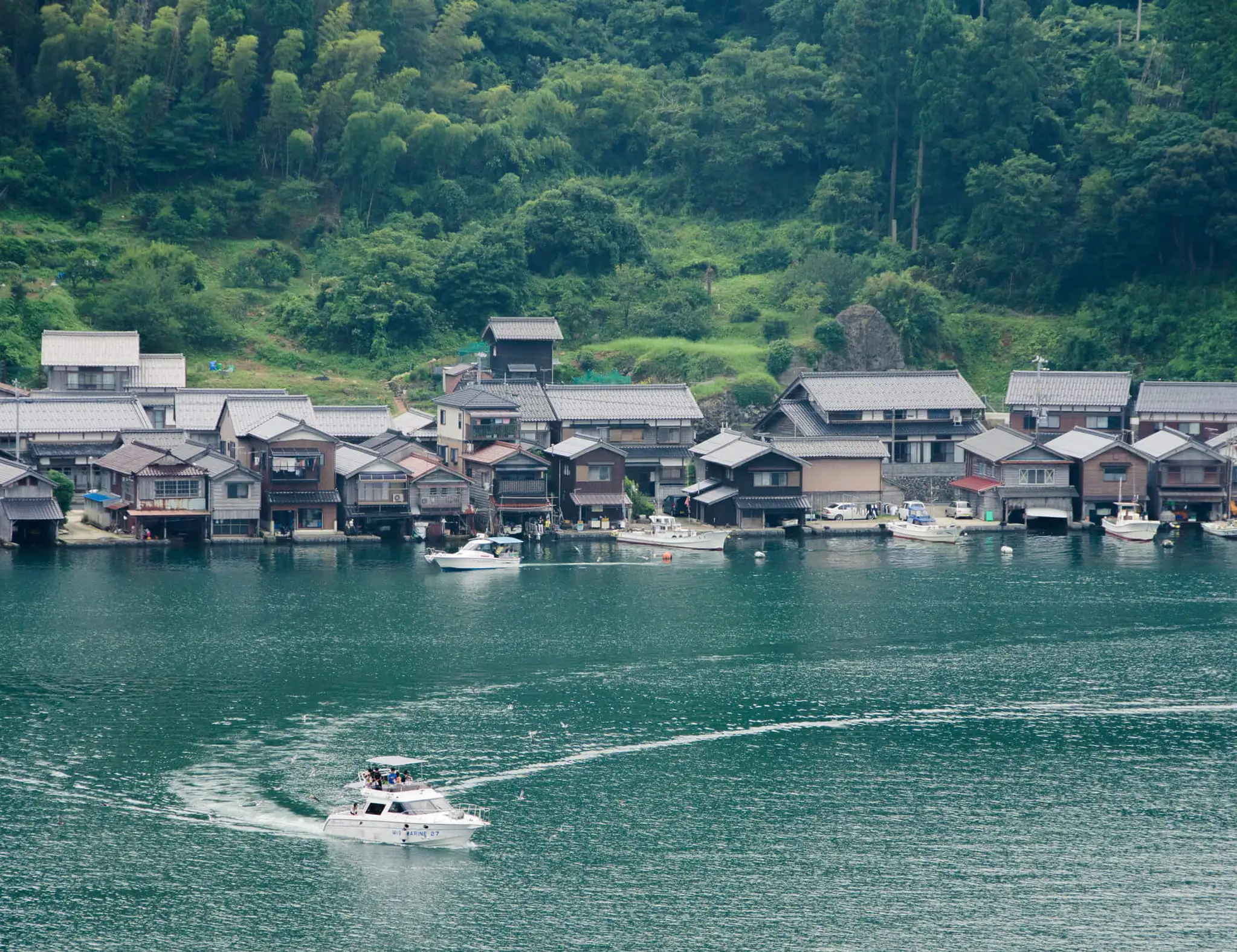
Traditional Fishing Villages
In charming fishing villages like Ine and Yosano on the Tango Peninsula, you'll experience traditional Japanese life by exploring the unique Funaya boat houses, seamlessly blending local living with the sea.
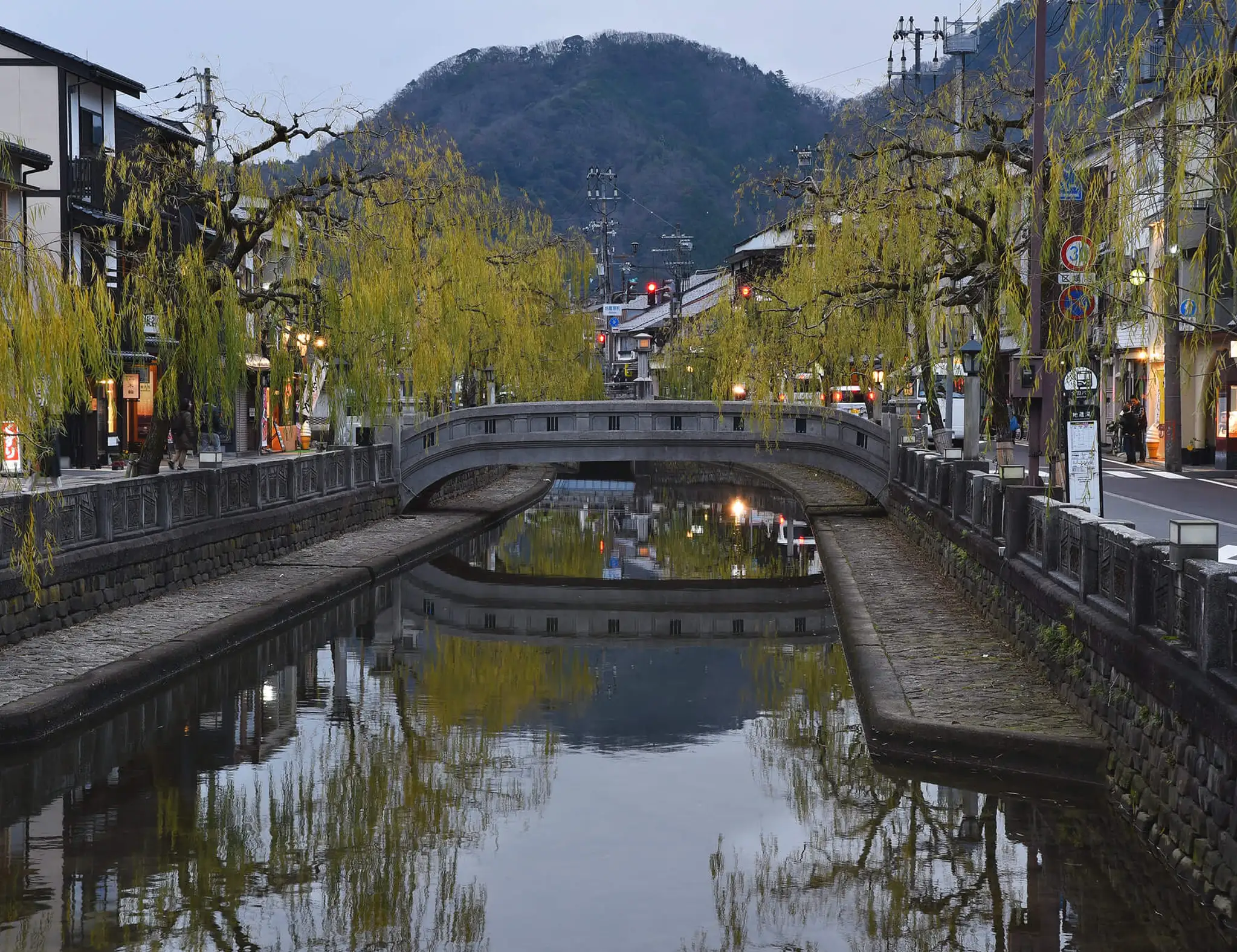
Relax at a 1300-Year Old Onsen
Onsen, or thermal springs, abound on this bike trip. However, we've got a special one for you on this trip — the Kinosaki Onsen. At more than 1300 years old, Kinosaki is in fact an entire town of interconnected hot springs that sits nestled between mountains, the sea and the Otani river. At Kinosaki, you can stroll through the town in a yukata kimono, visit its historic temple, and if you’re lucky, you might even get to spot an endangered great white stork.
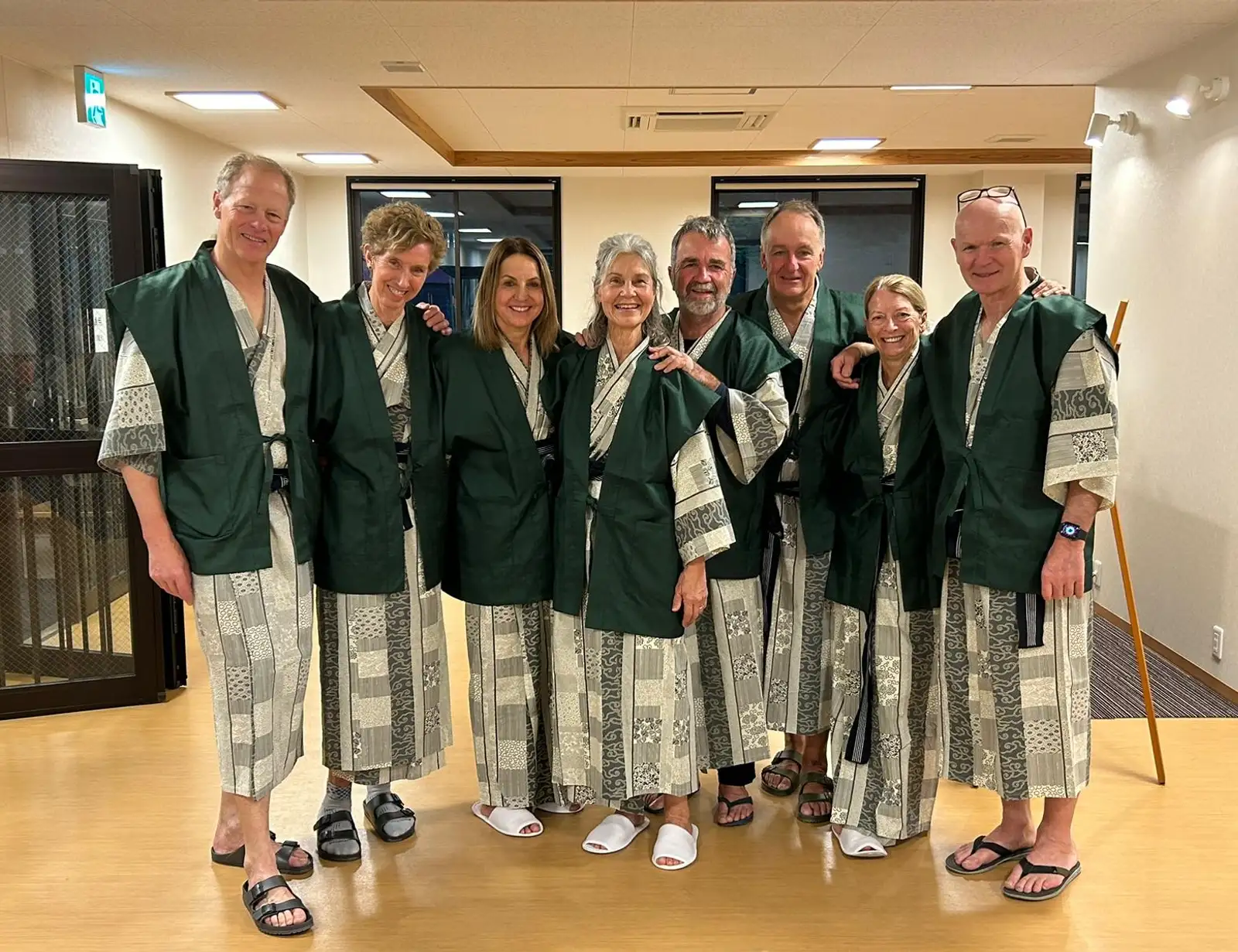
Arts and Crafts
Aside from the natural beauty, submerge yourself in Tango's vibrant culture. From savoring delicious local seafood to observing ancient crafts and traditions, each moment offers a profound connection to Japan's essence.
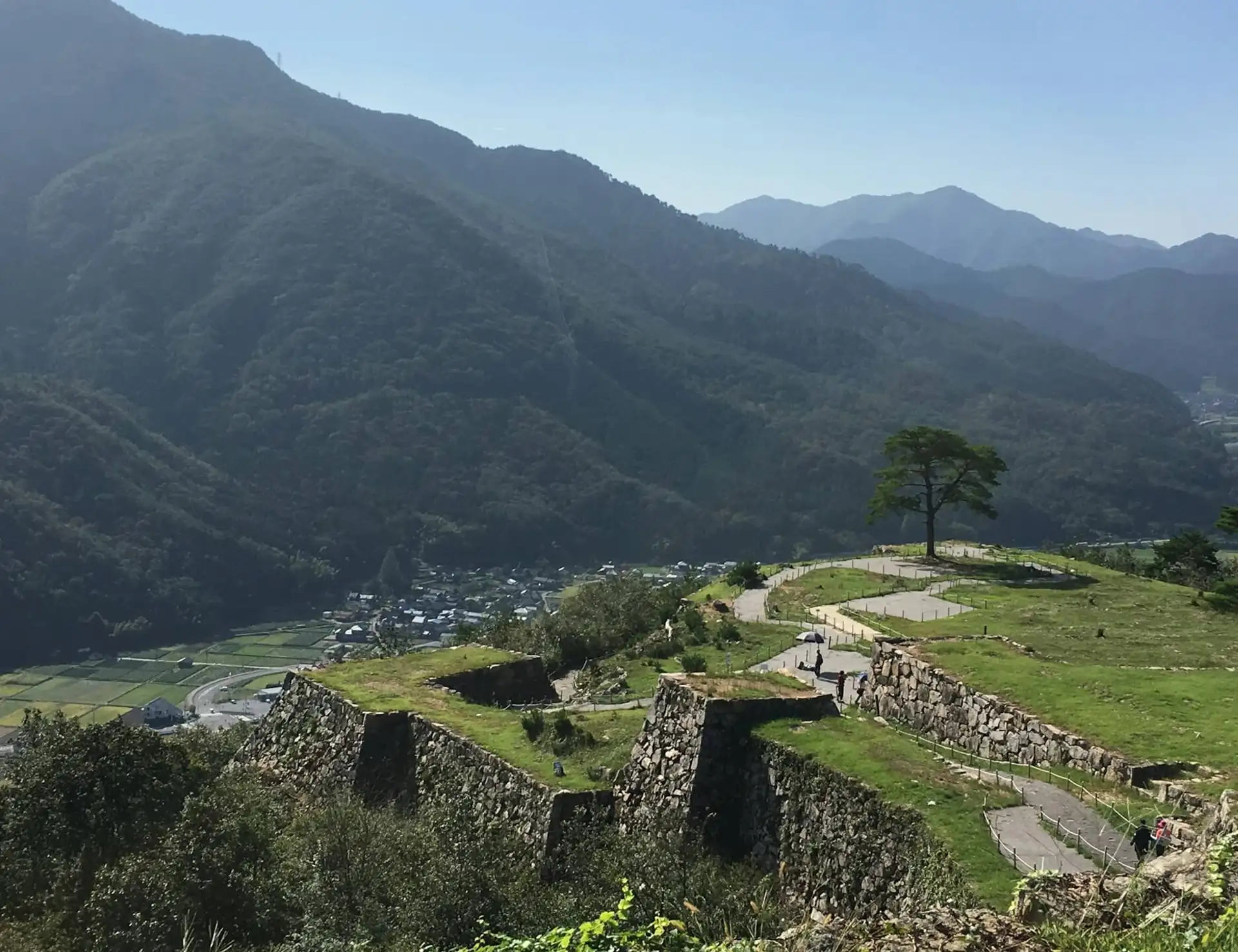
medieval castles
Visit beautiful medieval castles built in the traditional Japanese style, including the Fukuchiyama castle, and Takeda castle perched high-up in the mountains.
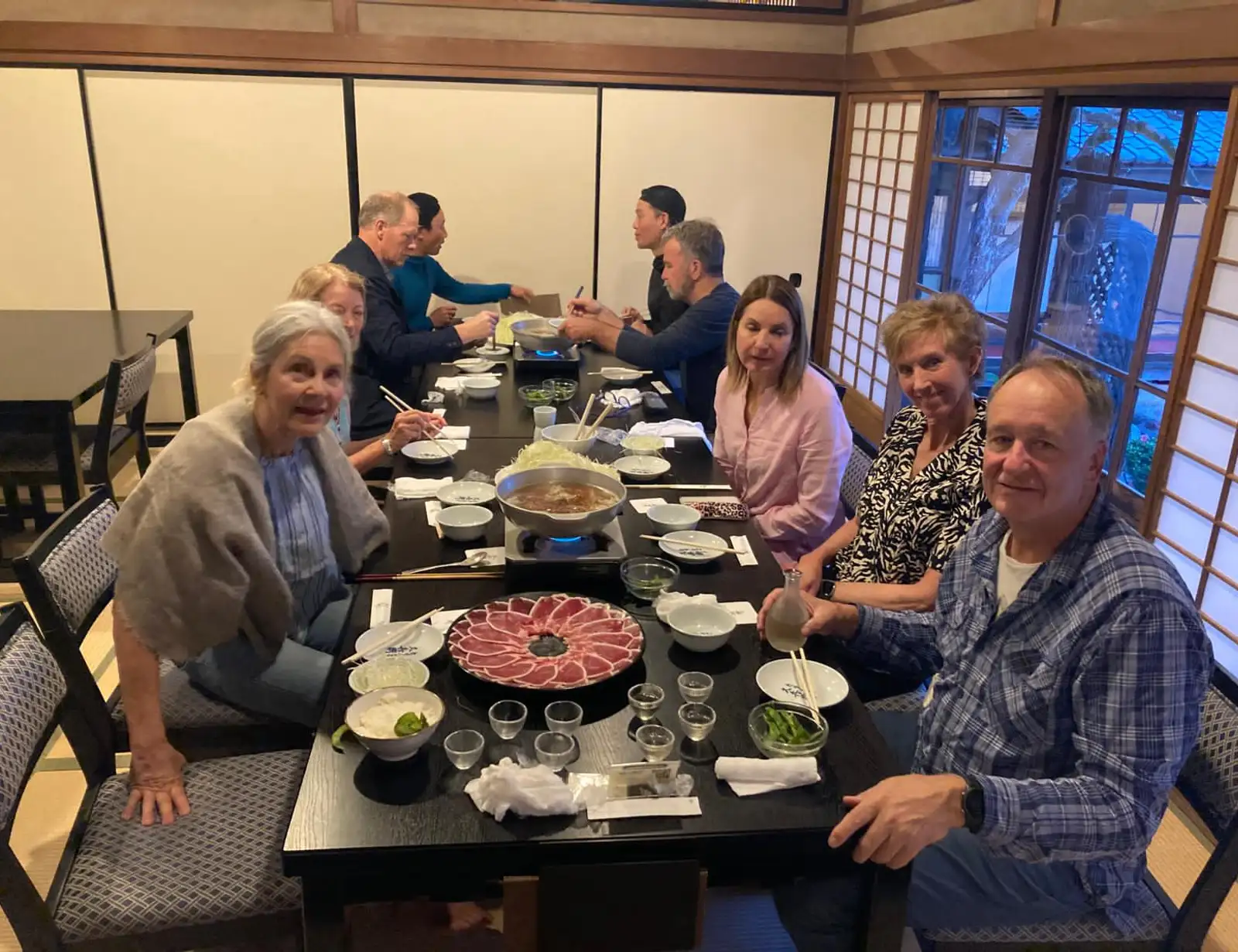
Enjoy delicious Japanese cuisine
Japanese cuisine is rated as among the finest in the world, and Kyoto is the beating heart of Japan's culinary tradition.
Itinerary
Brief Itinerary
Meals are indicated as B = Breakfast, L = Lunch, D = Dinner.
Listed hotels are subject to availability and may be replaced with similar alternatives of equal standard.
| Day | Place | casual Inns | Meals | Distance | Activity |
|---|---|---|---|---|---|
| DAY 1 | Kyoto | Renka-no-Yu On-Yado NONO Kyoto Shichijo (onsen) | D | ||
| DAY 2 | Miyama | Hisaya | B | 65 km / 40 mi | cycling |
| DAY 3 | Fukuchiyama | Hotel Sunroute Fukuchiyama | B | 70 km / 43 mi | cycling |
| DAY 4 | Takeda | Tataragi Forest Resort | B,D | 55 km / 34 mi | cycling |
| DAY 5 | Kinosaki Onsen | Onishiya Suishoen (ryokan, onsen) | B | 65 km / 40 mi | cycling |
| DAY 6 | Taiza Onsen | Shorenkan Yoshinoya (ryokan, onsen) | B,D | 55 km / 34 mi | cycling |
| DAY 7 | Amanohashidate | Amano Hashidate Hotel (onsen) | B,D | 60 km / 37 mi | cycling |
| DAY 8 | Departure | B |
Detailed Itinerary
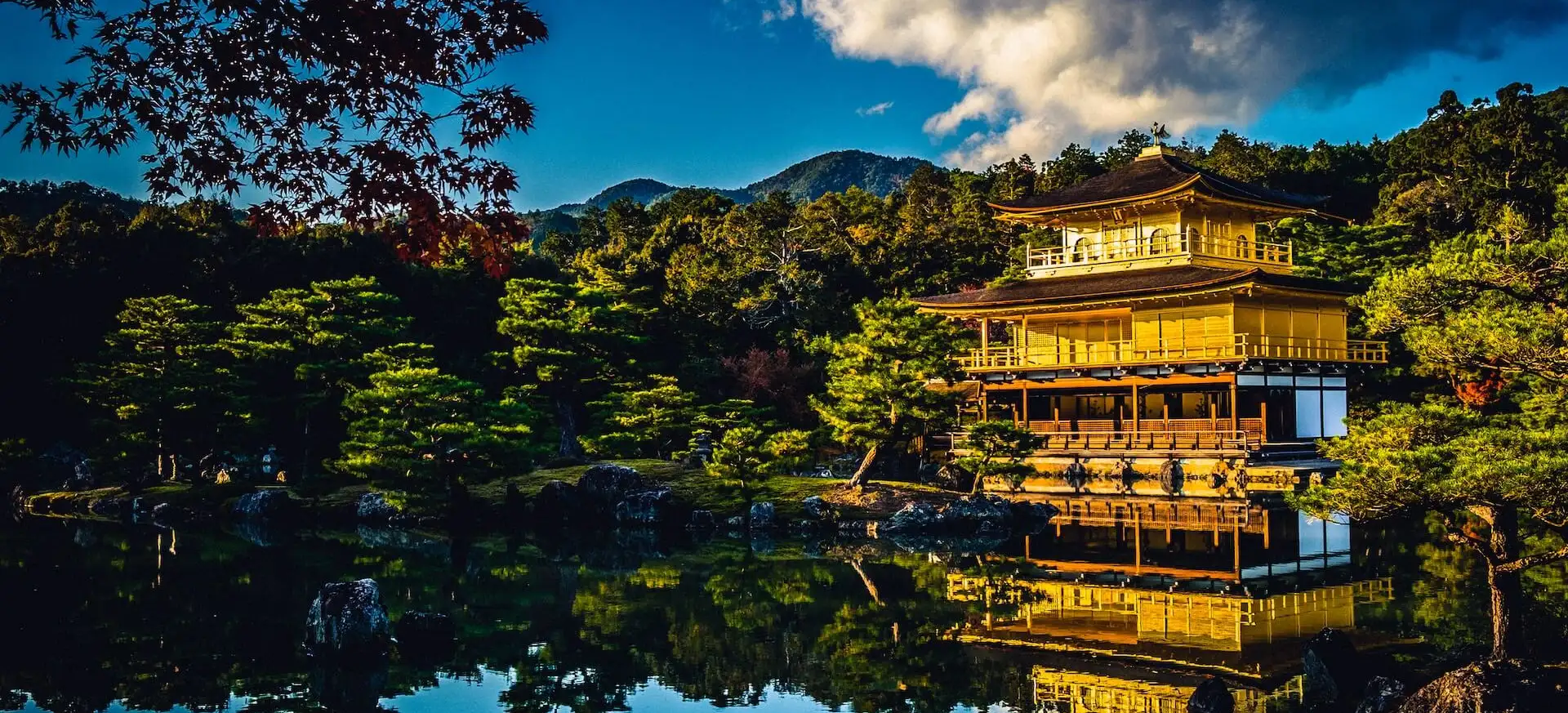
Day 1: Kyoto
Arrive at the centrally located hotel in Kyoto today. We gather at 5:00 pm in a hotel situated in the heart of Kyoto for a brief introductory meeting. Here, we ensure that your bikes are the perfect fit for you and then enjoy a delightful Japanese welcome dinner.
Kyoto is well-known for its rich array of traditional cultures and activities, which include handicrafts, the tea ceremony, Noh theater, and Kyo-ryori (Kyoto's original cuisine). The city offers numerous opportunities for diverse cultural experiences. To fully immerse yourself in the charm of Kyoto, we strongly recommend arriving a day or two early to explore. Don't miss out on iconic landmarks such as Kiyomizu Temple and Kinkaku-ji (the Golden Pavilion).
Getting to Kyoto is convenient, as it's approximately a 1.5-hour express train ride from Osaka's Kansai International Airport or about a 2.5-hour journey by shinkansen from Tokyo.
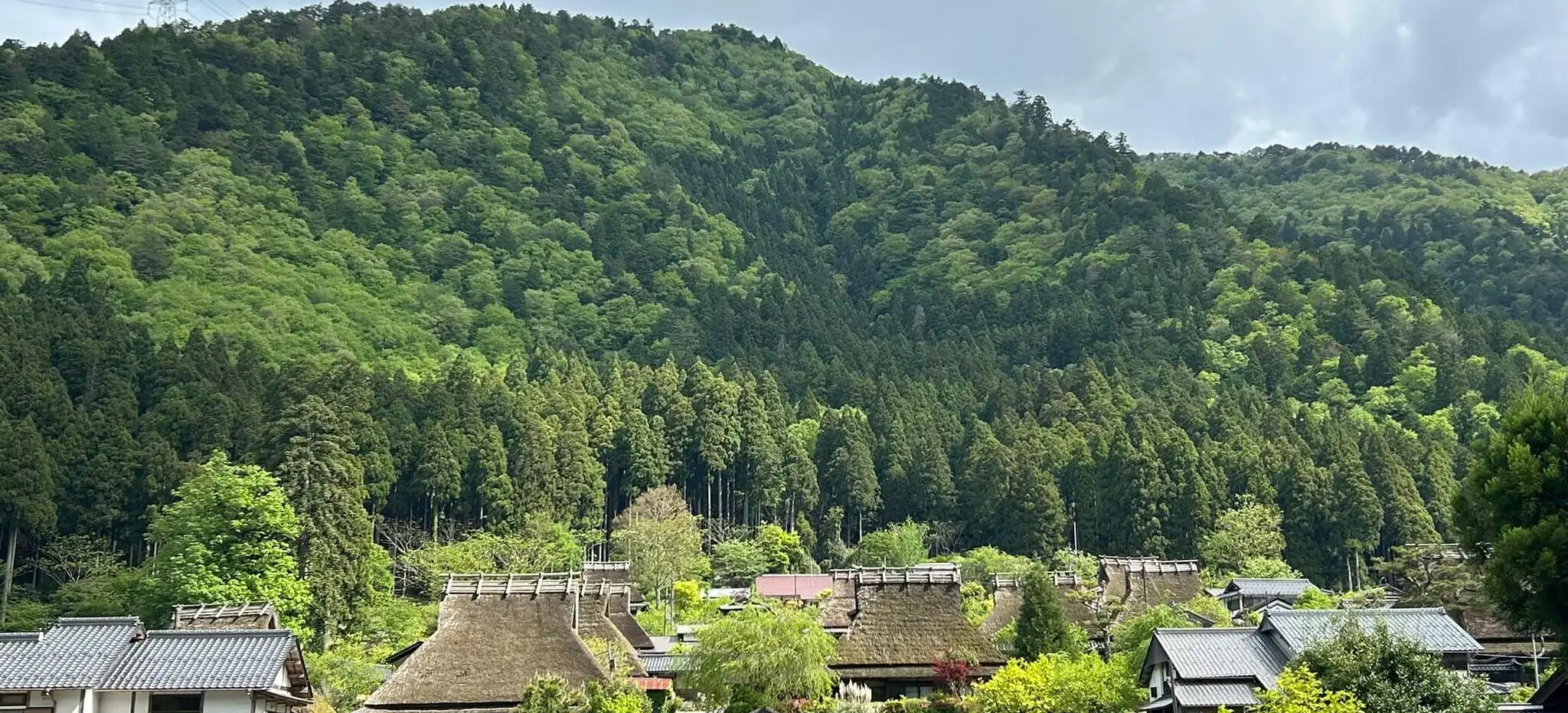
Day 2: Miyama
Starting our journey from Kyoto, the historical heart of Japan, we set out on a tranquil cycling adventure along the peaceful backroads that run alongside the Yura River. Along the way, we have the opportunity to observe locals engaging in various traditional activities, such as farming, fishing, thatching, and charcoal production. Our route guides us through scenic mountain roads lined with ancient traditional houses. Our ultimate destination is the charming Miyama village, celebrated for its well-preserved thatched farmhouses.
While Kyoto is renowned for its cherry blossoms, magnificent shrines, temples, and numerous UNESCO World Heritage sites, Miyama provides a distinctive and genuine glimpse into rural Japanese life. As we approach the village and conclude this part of our journey, we will come to appreciate the simplicity and beauty that make Miyama a hidden treasure. Upon our arrival in Miyama, we will unwind and refresh our weary bodies at an Onsen.

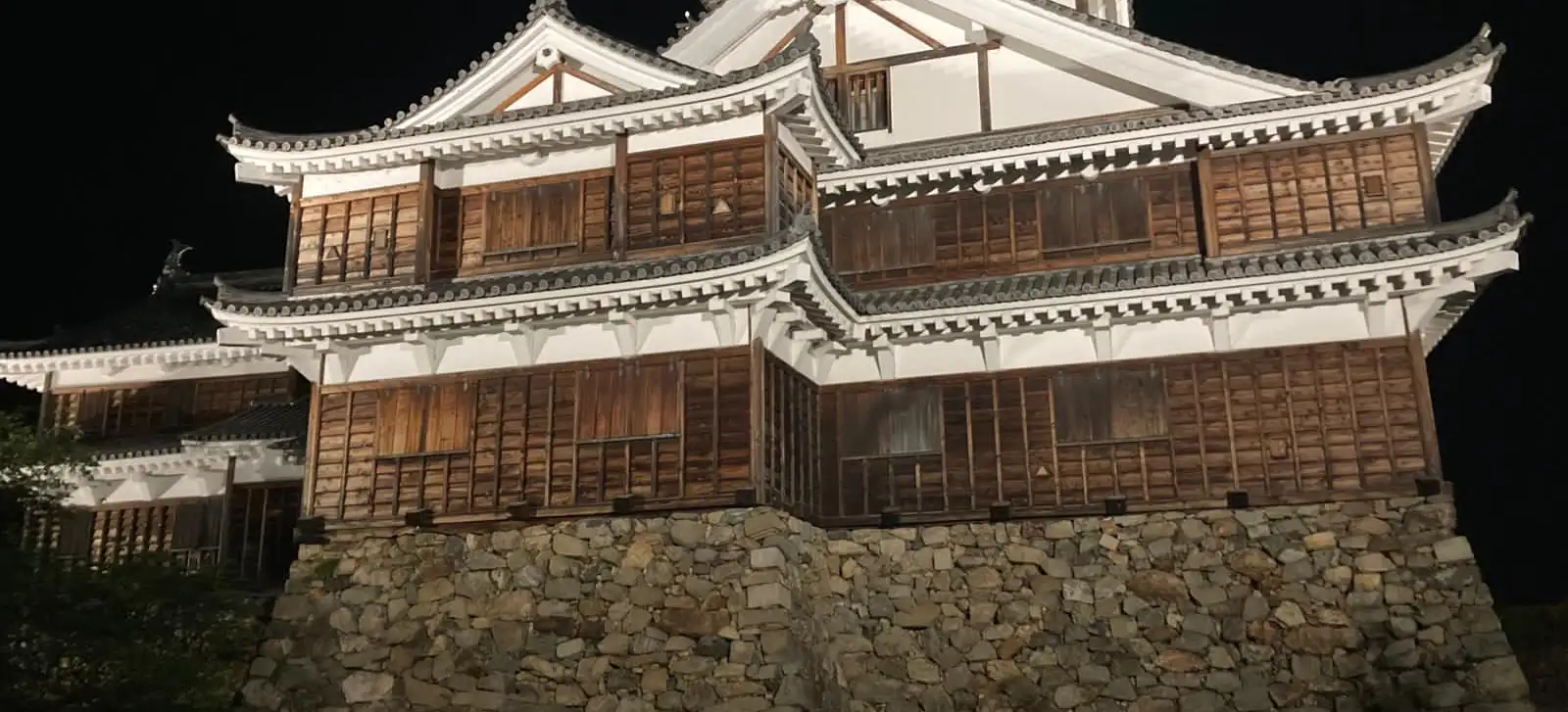
Day 3: Fukuchiyama
This morning, we continue our journey alongside the picturesque Yura River, immersing ourselves in its awe-inspiring landscapes. While navigating the peaceful back roads, we gain a unique insight into the daily lives of the local residents. Along our route, make a stop at the Gunze Museum, which was established in 1896 and is dedicated to showcasing the rich history of the renowned textile company, Gunze. Here, we have the opportunity to explore the world of sericulture and silk production, where we witness an impressive array of machinery and tools used in the silk industry, providing an enlightening and educational experience.
Following the course of the beautiful Yura River, we eventually arrive at our destination for the day, the historic castle town of Fukuchiyama. This town is renowned for Fukuchiyama Castle, built in 1576 by the legendary samurai Akechi Mitsuhide, and is adorned with well-preserved wooden structures. As we stroll through the streets, get ready to be transported back in time, retracing the footsteps of the esteemed Akechi Mitsuhide and immersing ourselves in the rich history of this town.


Day 4: Takeda
Today, we commence a journey through serene mountainous landscapes, allowing us to pause and appreciate the tranquility that envelops us. Along our path, we take a break at a peaceful shrine, offering a sacred haven during our travels.
Continuing on, we pass through Yakuno, a location situated precisely on the Prime Meridian. Yakuno holds unique geological importance as the sole area in Kyoto Prefecture with a volcanic presence, known as Treasure Mountain. This volcano has enriched the soil with fertile volcanic ash, leading to an abundance of highland vegetables and specialty fruits. The region is particularly celebrated for its Yakuno grapes and Mube fruit, thriving thanks to the well-drained soil.
Our day's destination is the charming castle town of Takeda, where echoes of history can be found at every corner. Takeda is most renowned for the "Takeda Castle Ruins," often referred to as the "Castle in the Sky." On days when a sea of clouds envelops the region, the castle appears to hover ethereally above, earning its celestial nickname.


Day 5: Kinosaki Onsen
Today, pedal along hidden roads and through mountainous terrain, eventually reaching the vibrant historical castle town of Izushi. Flourishing some 200-300 years ago during the Edo period, Izushi is steeped in the stories of a bygone era, just waiting to be shared. As we meander through its streets, the town's culinary heritage comes to life, particularly with its renowned "Izushi-Soba," a unique variation of Japanese buckwheat noodles. With approximately 50 soba shops lining the streets, there's a gastronomic adventure to be had at every corner.
After immersing ourselves in the historical and culinary treasures of Izushi, we'll continue cycling to Kounotori Park. This park is dedicated to the preservation and propagation of the nation's special natural monument, the white stork. It offers an intimate opportunity to observe these elegant birds up close, experiencing the serenity they bring to their surroundings.
As our day's journey comes to a close, we find ourselves in the timeless embrace of Kinosaki Onsen. Marking the midpoint of our tour, this ancient hot spring town, with its 1300-year-old legacy, warmly welcomes tired travelers. Here, embrace the town's traditions – strolling in yukatas, savoring the historic ambiance, and allowing the therapeutic waters to rejuvenate our spirits.


Day 6: Taiza Onsen
This morning, we set out on a cycling adventure, beginning in the charming town of Kinosaki Onsen and venturing into the mountains before descending towards the Sea of Japan. Our route takes us along the captivating "Isaribi Fishing Fire Line," named after the mesmerizing lights of squid fishing boats that illuminate the waters from June to October. Situated within the San'in Kaigan National Park, this coastline boasts the rugged beauty of rias. As we pedal, we will revel in the awe-inspiring natural scenery of the San'in coast.
Emerging from the pristine beaches of Kumihama, we continue along the shoreline of the Tango Peninsula. The crystal-clear waters here, often referred to as "Tango Blue" due to their distinctive and clear blue hue, are irresistibly inviting. Let's make a stop on the powdery white sands for a tea break, taking in the tranquility of the surroundings.
Our day's journey concludes at the renowned Taiza Onsen, famous for its sunsets over the Sea of Japan. As the sun dips below the horizon, painting the sky with fiery oranges and serene purples, we immerse ourselves in the soothing hot springs. And as the evening unfolds, we treat ourselves to the freshest seafood delicacies, offering a true taste of the region.


Day 7: Amanohashidate
Today, we set out on a cycling adventure along the breathtaking coastline of the Tango Peninsula, with the serene beauty of the Sea of Japan accompanying each pedal of our journey. We take a refreshing tea break along the picturesque shores as we continue our ride. Our path leads us to the charming fishing village of Ine, famous for its unique 'funaya,' or boathouses. These are not your typical floating homes; instead, they are built on stilts above the water. The wooden structures serve as a dock on the ground level, while the upper level is used as a residence. As we cycle past, we will witness over 200 of these iconic structures lining the bay. The timeless routines of Ine's fishermen, who set out daily following the traditions of their ancestors, create a portrait of tradition and resilience.
Our ultimate destination on this journey is the mystical Ama-no-hashidate, aptly named the "Bridge to Heaven." Cycling onto this majestic sandbar in the Tango Peninsula, we will be treated to one of Japan's three most renowned landscapes.
As night falls, we retreat to our tranquil seaside accommodation in Amanohashidate, indulging in the region's delightful cuisine. Our journey reaches its zenith with a celebratory dinner, a moment to raise our glasses to our odyssey through the Samurai lands, reflect on our cherished moments, and value the bonds we have fostered.

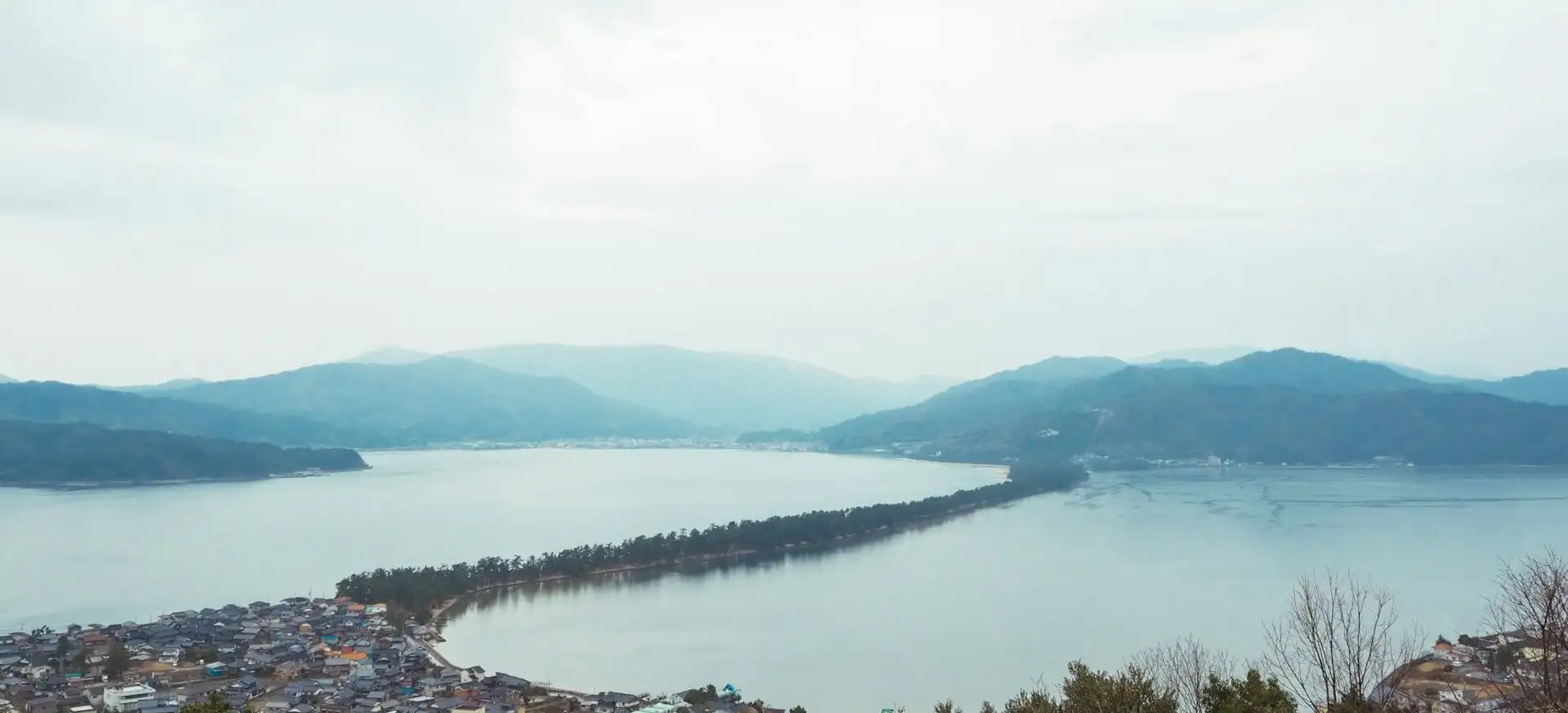
Day 8: Departure
Travel further as per your onward travel plans.
To Hiroshima: The best way is to take the JR Hashidate Limited Express from Amanohashidate Station near the final hotel and transfer to the Hiroshima-bound Shinkansen at Kyoto Station. You can reserve and buy tickets at any JR ticket office.
Ready to plan your adventure? Download a print-ready detailed itinerary.
Map
Accommodation
Each hotel has been thoughtfully selected to ensure an exceptional and memorable experience for guests. Should the listed hotel be unavailable, we will ensure an alternative of similar quality.
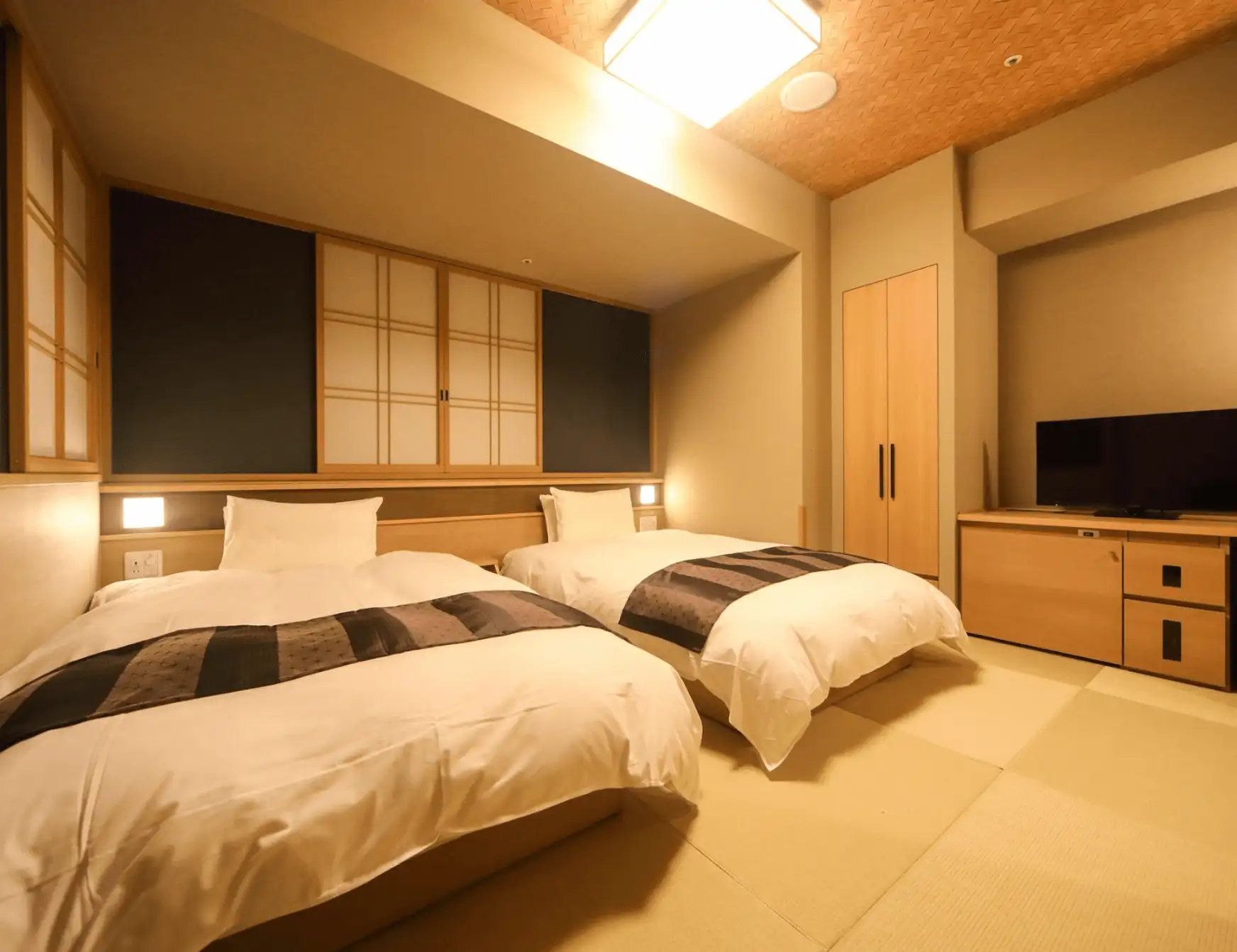
Onyado Nano or KKR Kyoto Kuniso
The hotel on Day 1 may vary depending on the departure month, with accommodations at either KKR Kyoto Kuniso or Onyado Nono. Both hotels are conveniently located within walking distance of train stations, ensuring easy arrival. KKR Kyoto Kuniso offers an authentic stay in a Ryokan, a traditional Japanese inn. Onyado Nono features an onsen, a therapeutic hot spring, for a relaxing experience.
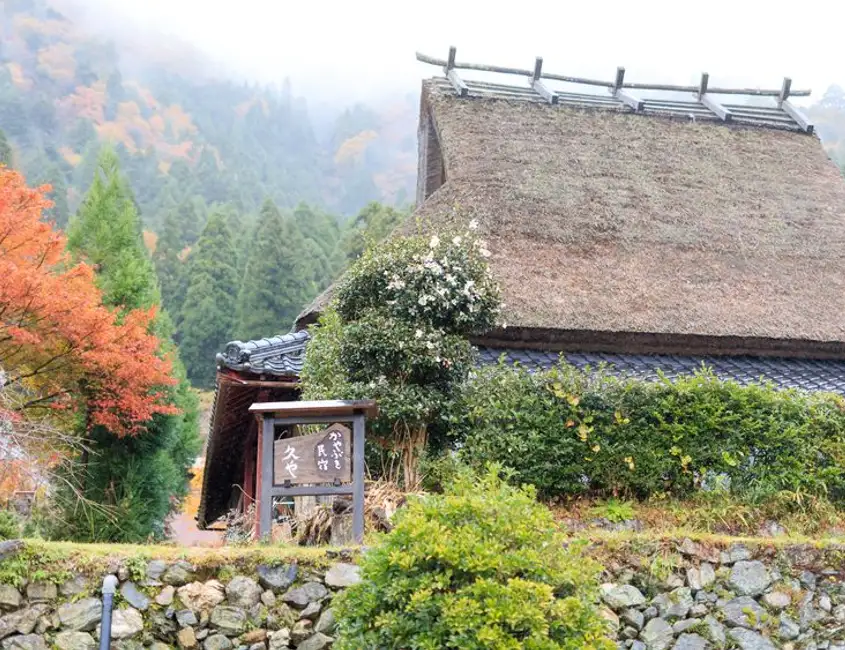
Thatched Inn Hisaya
We spend the night in Kayabuki No Sato, Miyama’s famed thatched village, staying at The Thatched Inn Hisaya, a 130-year-old traditional inn perched on a small hill with stunning countryside views. Like the rest of the village, the inn is built from wood and stone with a thatched roof, preserving the region’s cultural heritage. Open to visitors since 1995, it offers an authentic glimpse into rural Japanese life. Guests enjoy fresh, home-cooked meals made from locally grown vegetables, making this a truly immersive and serene experience.
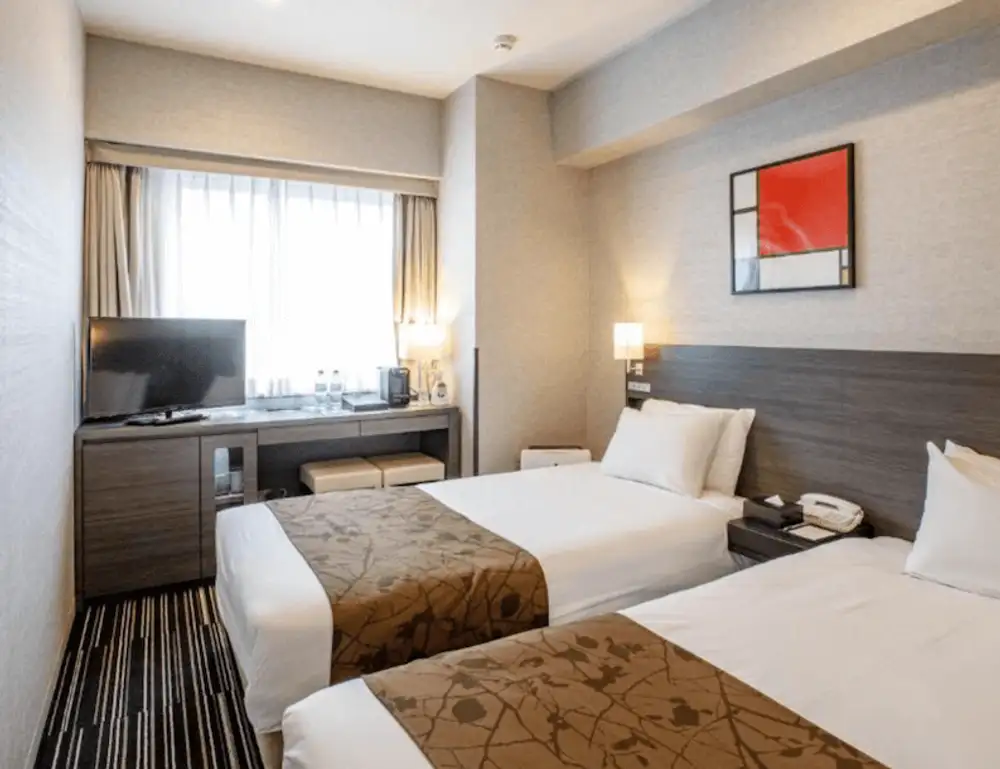
Hotel Sunroute Fukuchiyama
Fuckuchiyama is a small town and our hotel for the night is rated as among the best in Fukuchiyama on various review platforms. The Sunroute Fukuchiyama also has the advantage of being a short distance away from the main highlights such as the Fukuchiyama castle.
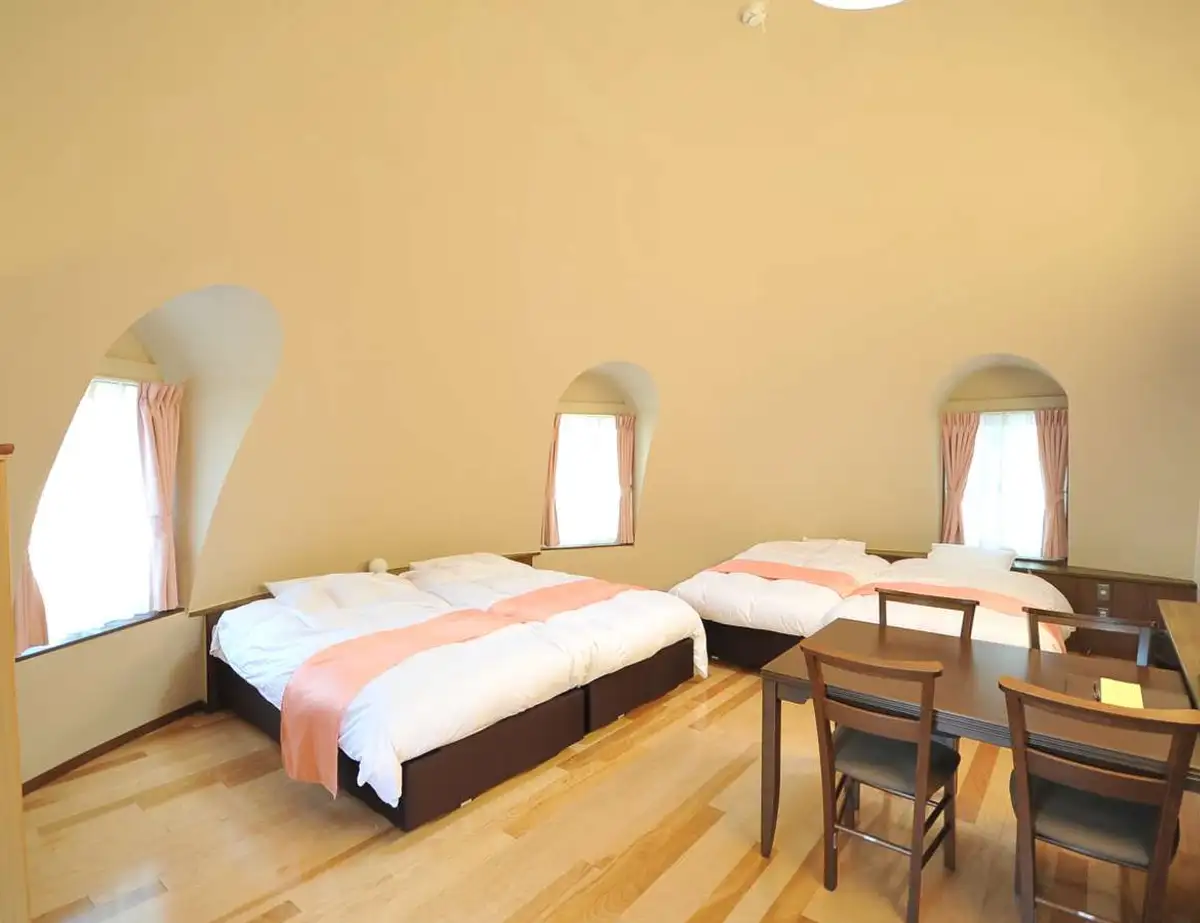
Tataragi Forest Resort
We finish the day’s cycling at a small hamlet called Tataragi, located below the majestic rockfill Tataragi dam. This is a unique dome and log-cabin style accommodation nestled in the lap of nature, surrounded on all sides by trees and hills. Located close to it is the Asago Art Forest, an open-air art museum dedicated to Toshio Yodoi,a pioneer of modern Japanese art who was from this village. There is no other quality accommodation in this place.
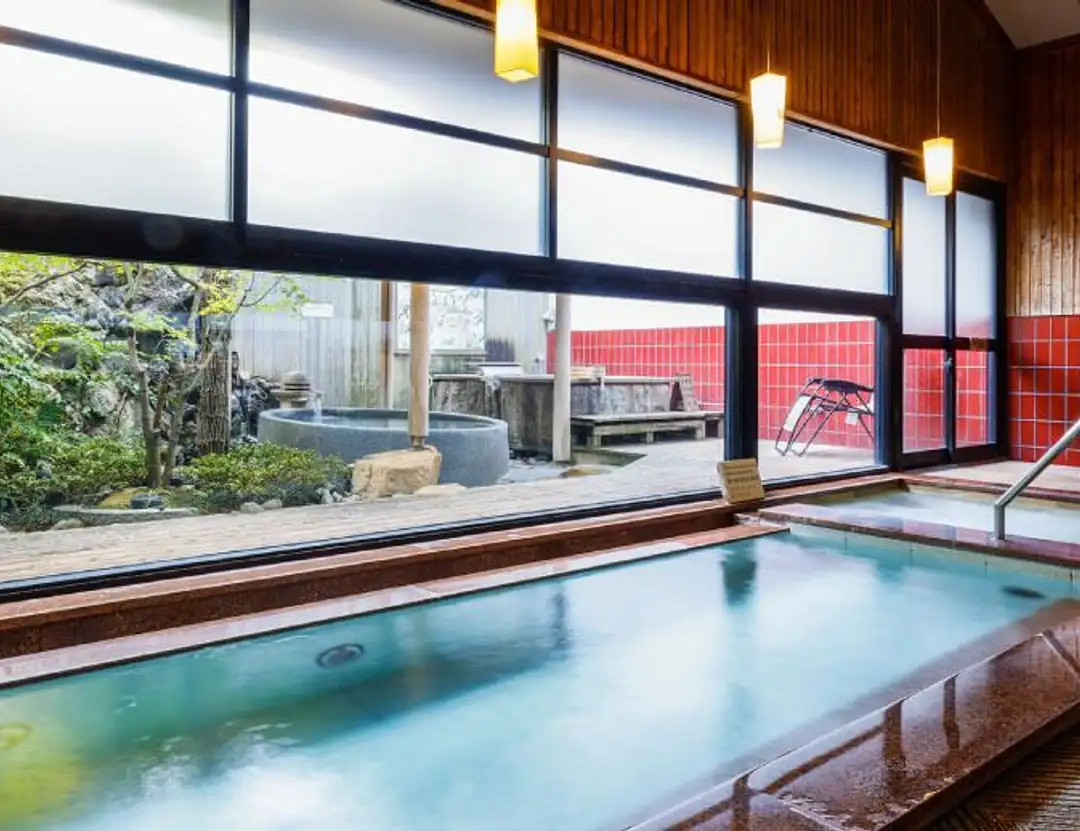
Onishiya Suishoyen
Our cycling for the day ends in Toyooka, the town of which the Kinosaki Onsen area is a part. Our hotel for the night is a traditional-Japanese style Ryokan with a natural hot spring (onsen), a spa, an open-air bath, and a sauna. The hotel also offers a van shuttle to the main area of the Kinosaki Onsen.
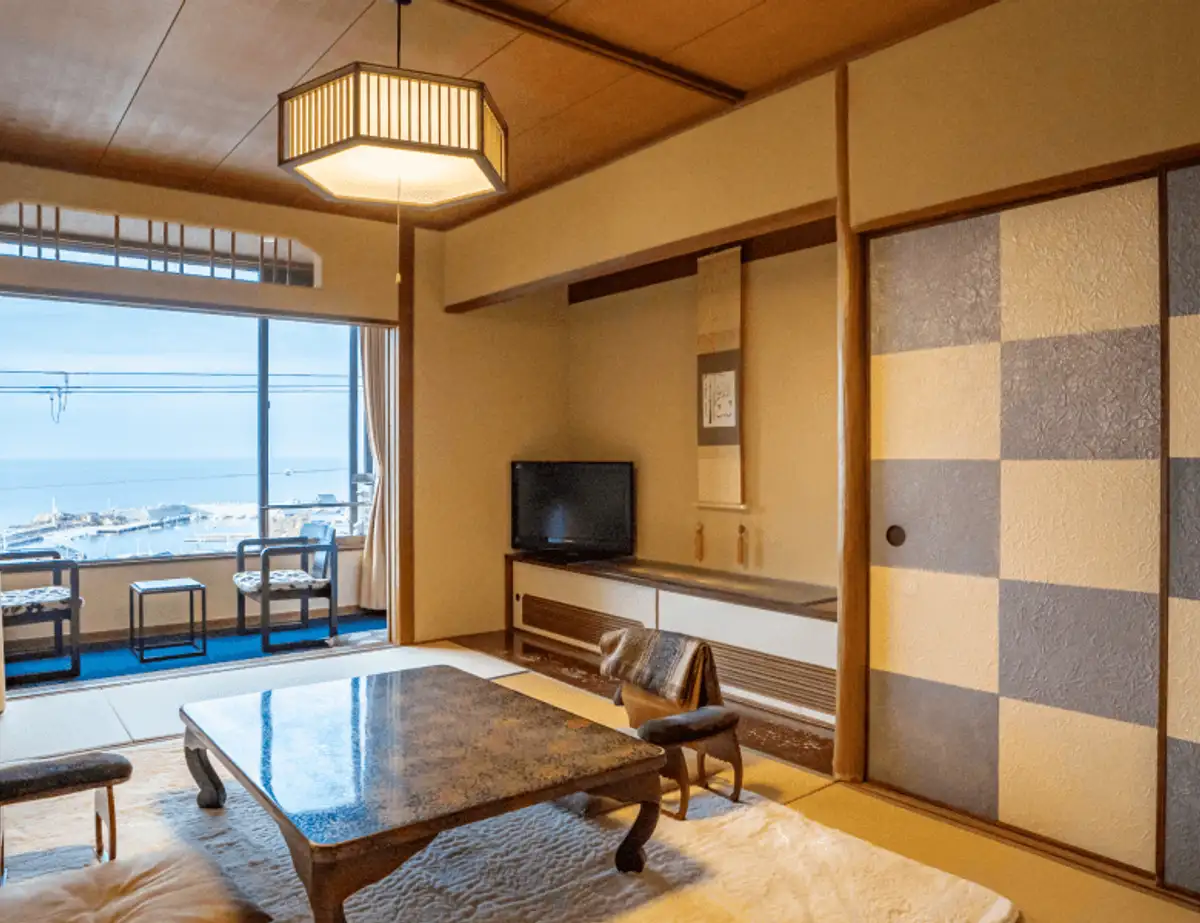
Shorinkan Yoshinoya
We stay for the night in Taiza, a small fishermen’s village overlooking the Sea of Japan. Our hotel, Shorinkan Yoshinoya, is a traditional Japanese Ryokan and onsen (hot springs) that has been welcoming visitors for over 90 years. The hotel is known for its fresh seafood, in particular the rare Taiza crab. Only five boats in all of Japan are licensed to catch this crab, and hence the catch is always very small. For this reason, the Taiza crab is also known as the Phantom crab. Its fresh and delicious sea food, as well as its location offering excellent views are important reasons for us selecting this hotel.
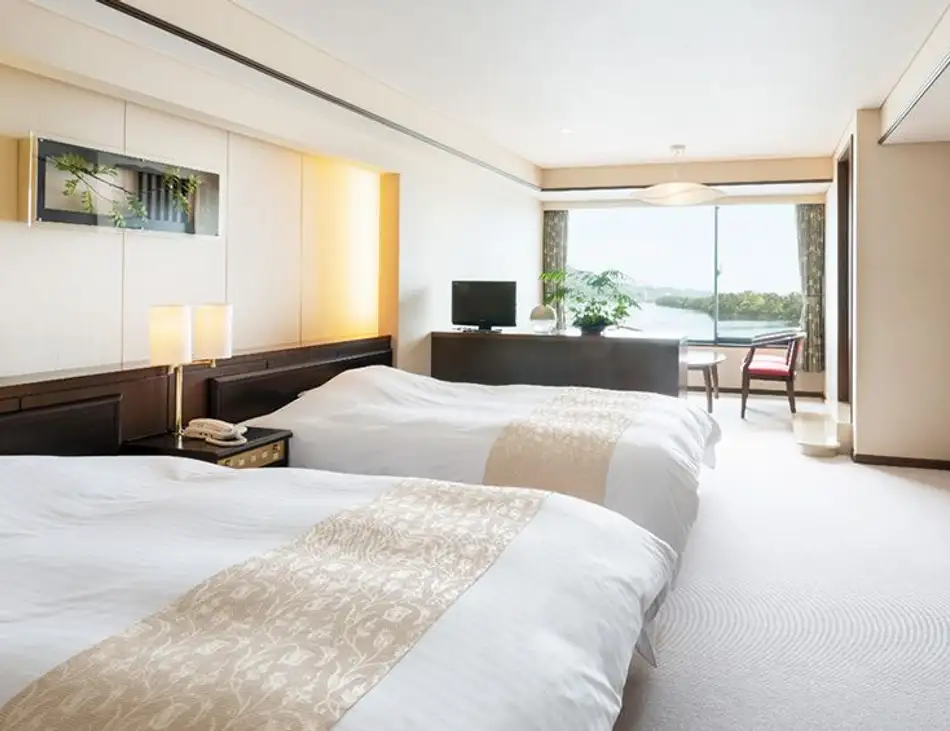
Amanohashidate Hotel
In Amanohashidate, our hotel is called the Amanohashidate Hotel. It is located right in front of the scenic Amanohashidate, offering great views of the pine-covered sandbar and the Miyazu Bay from 48 out of its 52 rooms. It also has open-air baths with views of the Amanohashidate. It is also located a short walk away from the Amanohashidate train station of the Miyazu line on the Kyoto-Tango railway, making it highly convenient for your onward
Dates and Prices
Book with Confidence: Enjoy peace of mind — your 10% deposit is fully refundable up to 60 days before departure. See terms & conditions.
Single Supplement
From US $850
E-Bike Upgrade
From US $325
Couldn't find a trip with convenient dates?
Open your date as a join-in tour or customize further as a private one.
Essential Info
Inclusions
LODGING
All hotels as mentioned in the tour details or similar (subject to availability).
trip leader
Expert Trip Leader(s) who look after your every need and add meaning to your vacation.
bike
Immaculately maintained bike with helmet, suited to a terrain.
shuttle
A Van support follows the group of riders and carries all belongings.
meals
Meals as per itinerary. Guests are given the opportunity to dine on their own so that they discover a location independently.
refreshments
Refreshments and mineral water while cycling.
entrance
Entrance fees to most of the monuments and temples.
Exclusions
Airport pickup and drop
We recommend to book direclty from airport or hotel.
Beverages
Beverages such as alcohol, tea, coffee, juice at a hotel or restaurant.
Gratuity
Gratuities for your guide team are not included in the trip price.
Bikes
When you have a road and the thrill of a journey ahead of you, it’s imperative to have a good bike to enjoy it. Our fleet majorly consist of the below bikes as a part of this tour. However, sometimes due to height or availability constraints, we may provide a different but similar quality bike.
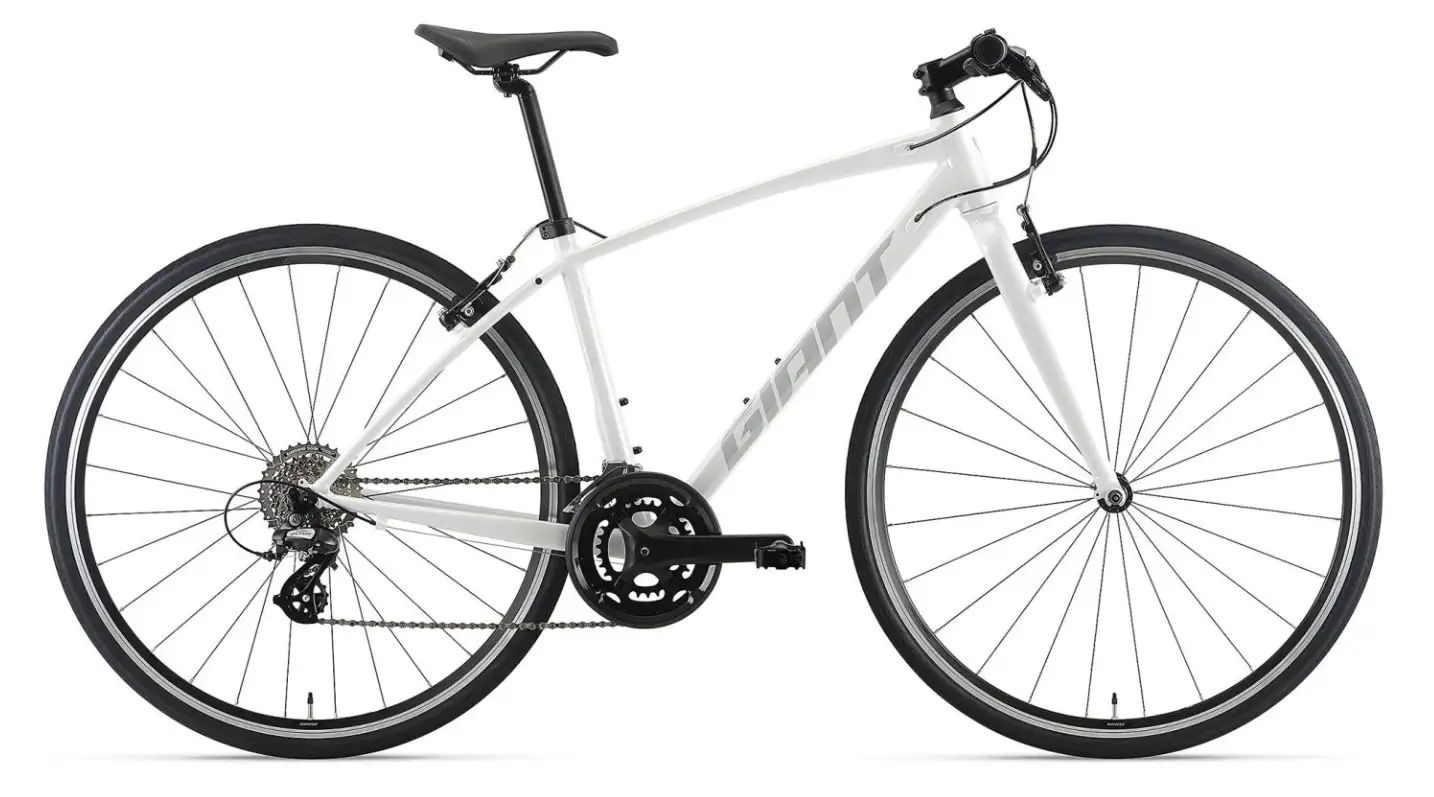
Escape RX 3 or similar
Included in your trip price
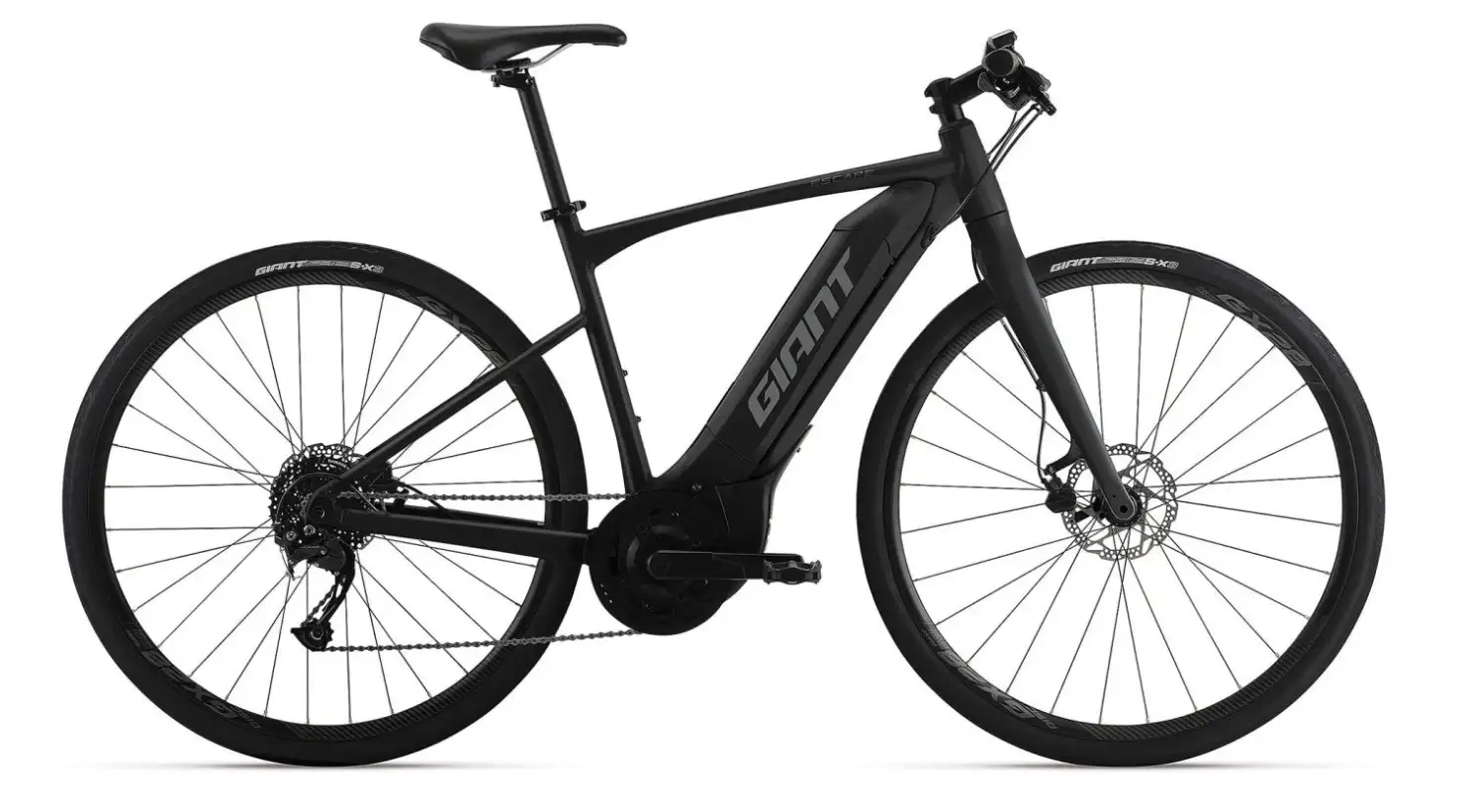
Escape R E+ or similar
Available at a surcharge
What to Expect
We want you to have a fantastic experience on your tour, so we aim to be upfront about what to expect along the way. Here are key details to keep in mind:
Accommodation:
Most of the hotels in Japan offer a mix of Japanese inns (Ryokans) and Western-style rooms. It is important to note that room assignments are subject to availability and beyond our control.
Japan is renowned for its rich cultural heritage, and two quintessential elements of this heritage are onsen and ryokans. Onsen refers to natural hot springs, which hold cultural, historical, and spiritual significance for the Japanese people. Ryokans, on the other hand, are traditional Japanese inns that offer a unique and immersive experience into the country's customs and way of life. Together, onsen and ryokans provide travelers with an opportunity to indulge in relaxation, rejuvenation, and a deep connection with Japan's past.
The combination of onsen and ryokans creates a unique travel experience that perfectly encapsulates the essence of Japan. Guests at ryokans often have access to private or communal onsen baths, allowing you to soak in the therapeutic waters while enjoying the surrounding natural beauty.
Japanese-style (Ryokans) rooms offer a unique local experience and are quite popular. They add a distinctive cultural touch to the tour. In Japan, taking public onsen hot spring in the hotel is so popular, so even nice beautiful hotels most time has rooms only with toilet.
Hence, for hotels lacking en suite bathrooms, guests are expected to utilize the communal bathing facilities.
Furthermore, depending on the hotel style, when double rooms are requested, we may only be able to secure twin rooms due to the limited availability of double beds in many Japanese hotels.
Dietary Preferences
While we do our utmost to accommodate all dietary requirements, please note that vegan and gluten-free options can be limited in some regions. We will certainly make every effort to cater to your preferences, but we recommend that guests carry some essential vegan or gluten-free staples as a backup to ensure their needs are fully met. Additionally, we encourage you to inform our guide at the start of the trip; they will be happy to assist you in sourcing suitable supplies from local grocery stores in larger towns whenever possible.
E-Bike Regulations in Japan
In accordance with Japanese regulations, e-bikes provide pedal-assist support only up to a speed of 24 km/h (15 mph). Beyond this limit, the motor will no longer offer assistance, and you’ll continue riding under your own power. This ensures a safe and enjoyable experience while complying with local laws.
Arrival & Departure Details
Arrival
Getting to Kyoto is convenient, as it's approximately a 1.5-hour express train ride from Osaka's Kansai International Airport or about a 2.5-hour journey by shinkansen from Tokyo.
Departure
You can take the JR Hashidate Limited Express from Amanohashidate Station to reach Kyoto. The journey takes approximately 2 hours. From Kyoto, take the Shinkansen to either Tokyo or Hiroshima. You may need to buy tickets at the JR ticket office as online booking from Amanohashidate can sometimes be unavailable.
Weather
Kyoto has a temperate climate and can be visited all year round.
Best Season: Spring (April to mid-June) and Fall (September to early-November)
The average temperature in spring varies from 10 to 25°C. Late March to early April is the time for plum and cherry blossoms. This is also the time when tourists begin to arrive in Kyoto in large numbers.
January
Offseason
February
Offseason
March
Mixed
April
Best
May
Best
June
Good
July
Mixed
August
Mixed
September
Best
October
Best
November
Good
December
Offseason
Best
Good
Mixed
Offseason
What to Pack
Packing smart is essential for a safe and enjoyable cycling adventure. From essential biking gear to clothing and travel necessities, this guide ensures you're prepared for any terrain or climate.
Recommended Bicycling Clothes & Gear
- Bicycling shoes or stiff-soled sneakers.
- Padded cycling shorts.
- Short-fingered cycling gloves (personal gloves are ideal).
- Brightly colored cycling jerseys or synthetic T-shirts for visibility.
- Synthetic cycling socks.
- Sunglasses with UV protection.
- Personal helmet (recommended even though provided).
- Personal saddle (optional for added comfort).
- Rain jacket or windbreaker.
- Cycling water bottle (to reduce plastic waste).
Note: Helmets, gloves, and water bottles are personal items, so bringing your own is recommended for maximum comfort and hygiene.
Clothing
- Light, breathable fabrics like cotton or linen.
- Full-sleeved clothing for sun protection.
- Warm layers for chilly mornings and evenings (if traveling in winter).
- Comfortable footwear for non-cycling time.
- Bring a compact rain jacket in case of sudden weather changes.
- Ethnic or modest clothing for exploring towns and temples.
Other Necessities
- Toiletries: Basic hygiene essentials, including insect/mosquito repellent and sunscreen.
- Hand sanitizer and wet wipes.
- Plug socket adaptor.
- Binoculars for wildlife spotting or desert landscapes.
Pro Tips
- Pack light but plan for the varying temperatures: warm days, chilly evenings, and desert winds.
- Use brightly colored clothing for visibility on roads.
- Pack light to leave room for shopping.
Luggage
Please limit your luggage to one medium-sized suitcase and one carry-on bag. Mark your luggage with your name, address, and phone number.
Visa Information
Before venturing on your adventure, make sure you're equipped with essential travel advice, including security updates, local laws, and crucial passport and visa information. Start by visiting the official government website of your home country for accurate and reliable guidance:
- UK Residents: Stay informed by reviewing the Foreign, Commonwealth & Development Office (FCDO) Travel Advice.
- US Residents: Access vital travel tips and updates through the US Department of State Travel Advice.
- Australian Residents: Plan ahead with the latest updates on the Smart Traveller website.
- Canadian Residents: Find comprehensive travel and visa guidance on the Government of Canada's Travel Advice and Advisories.
- New Zealand Residents: Get practical travel advice on the New Zealand SafeTravel website
- Residents of Other Countries: Check with your government or local consulate for tailored travel advice and requirements.
Note: Passport and visa regulations can change at any time. Stay proactive by checking for the latest updates to ensure a smooth and stress-free journey.
Insurance
Medical insurance that covers medical costs in case of an accident during the trip is mandatory to participate in our tours.
We recommend to purchase adequate travel insurance in order to participate in our tours and protect yourself from unforeseen events. Our experience shows that guests who purchase travel insurance—including coverage for all activities on the itinerary, trip cancellation, interruption, delay, baggage damage, loss or theft, personal accident, death and repatriation costs, medical and emergency expenses (including Covid-19), and personal liability—travel with greater peace of mind.
Can I use my credit card insurance?
Yes, as long as it meets our requirements and provides adequate coverage. Ensure you have an emergency contact number and policy number available.
When should I buy travel insurance?
Purchase travel insurance as soon as you've paid in full or booked your flights.
Is proof of travel insurance required?
Yes. You must provide your insurer's name, policy number, and emergency contact via our reservation form. This is mandatory. If you cannot provide proof, you’ll need to purchase insurance before traveling with us.
Does Art of Bicycle Trips sell travel insurance?
We do not sell travel insurance directly, as we believe our customers should have the freedom to choose a policy that best suits their needs. However, we recommend Insured Nomads as a great starting point.
Frequently Asked Questions
The fitness level required for each trip is indicated by the "level" of the tour, which in turn is mentioned on each tour page right next to the price and the trip duration.
Easy: The terrain is mostly flat with a few gentle climbs.
Moderate: The terrain is either mostly flat or consists of rolling hills with a few challenging climbs. There could also be a few days with longer riding distances of up to 75 kms (45 miles)
Difficult: The terrain is mostly hilly with strong elevation gains and/or has long days on the bike. Such trips are recommended for intermediate to advanced cyclists.
Please note that we usually bike around 4-5 hours per day irrespective of the level of the trip.
Yes, please communicate your dietary preferences to your trip leader and they'll ensure that the food you eat is as per your requirements.
Most of this trip is on double-lane paved tarmac roads with very less traffic.
We've designed this itinerary such that most of the cycling happens on quieter countryside roads far from busy traffic. The shuttle transfers on this tour have been strategically planned to bypass busy vehicular traffic.
While your tour price covers most common expenses, a few meals not included in the itinerary may require additional spending. As a general guideline, you can budget approximately US $25 per person per day for these extra expenditures.
Tips are not included in your tour price.
As a general rule, you may tip US$ 15-25 per person per day.
This figure is for the entire crew including the trip leader, the driver, and other support staff.
However, you are not obligated to tip, and you can always tip less or more than the above amount depending on the level of service you received on tour.
It is usually the norm to tip the tour guide, who then distributes the amount among the entire crew. However, you can also tip each individual member of the crew if you so desire.
In case you want to tip the staff at a hotel such as porters, you may pay them US $2-3 per day.
You can exchange currency at the currency exchange kiosks in Japanese airports, or you can use your credit card at ATMs at convenience stores such as 7/11 in major Japanese cities to withdraw JPY. Many Japanese commercial establishments still prefer cash, so its good to have some local currency with you when cycling in Japan.
Yes, you may wear riding shorts while riding your bike. When not cycling, it would be advisable to wear comfortable full-length pants. We recommend keeping a pair of comfortable pants handy in you support van.
When visiting temples and monuments, visitors should wear full-length, loose-fitting pants. Holy places of certain religions may also require covering your head. Your guide will inform of the dress etiquette required for visiting specific religious places.
The meeting time on Day 1 is mentioned in your travel planner shared with you. You can arrive either on the morning of Day 1 depending on the meeting time, or book a pre-tour night to arrive a day earlier.
We don't have anything planned for the last day, so you are free to depart at your discretion.
For answers to broader questions, please visit our Comprehensive FAQs section.

